Las Vegas sisters file suits in USA Gymnastics sex assault scandal
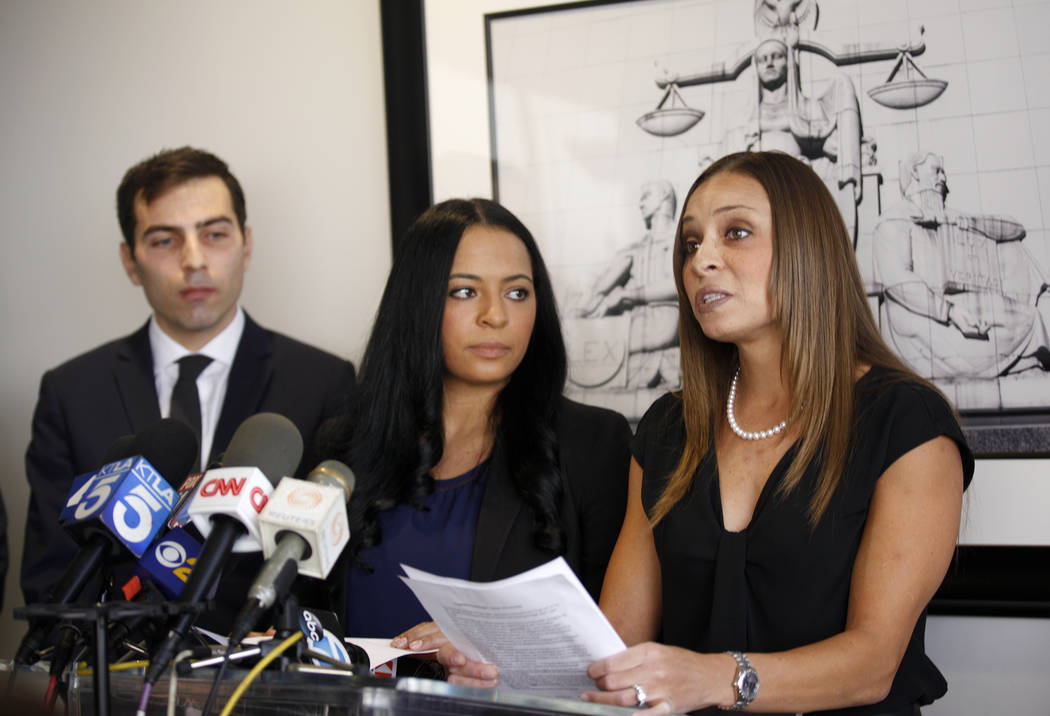
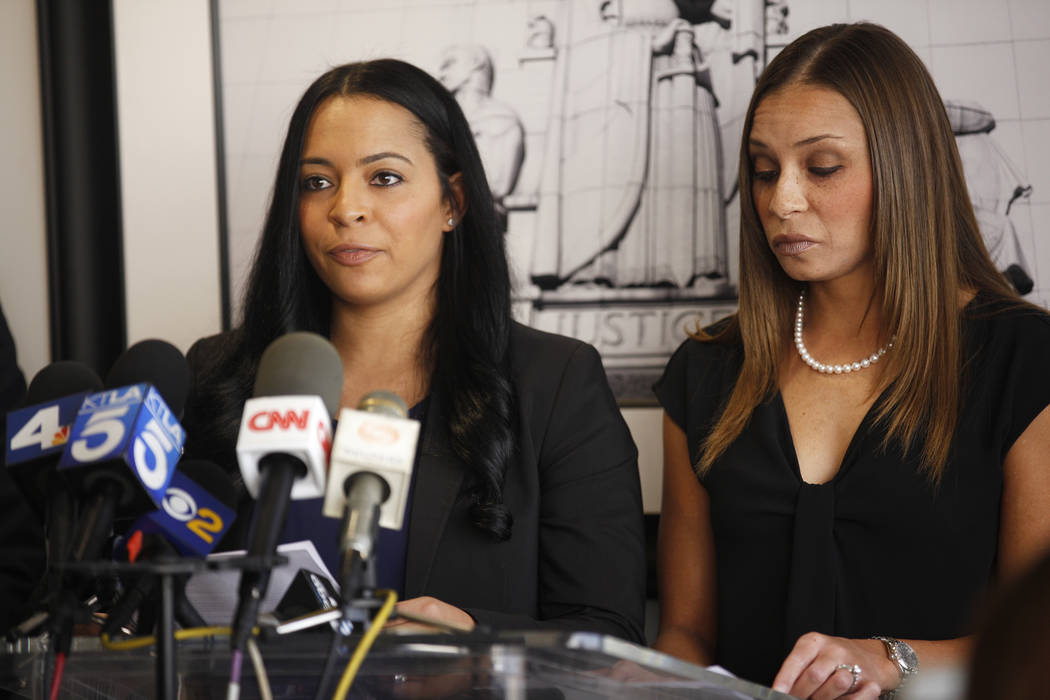
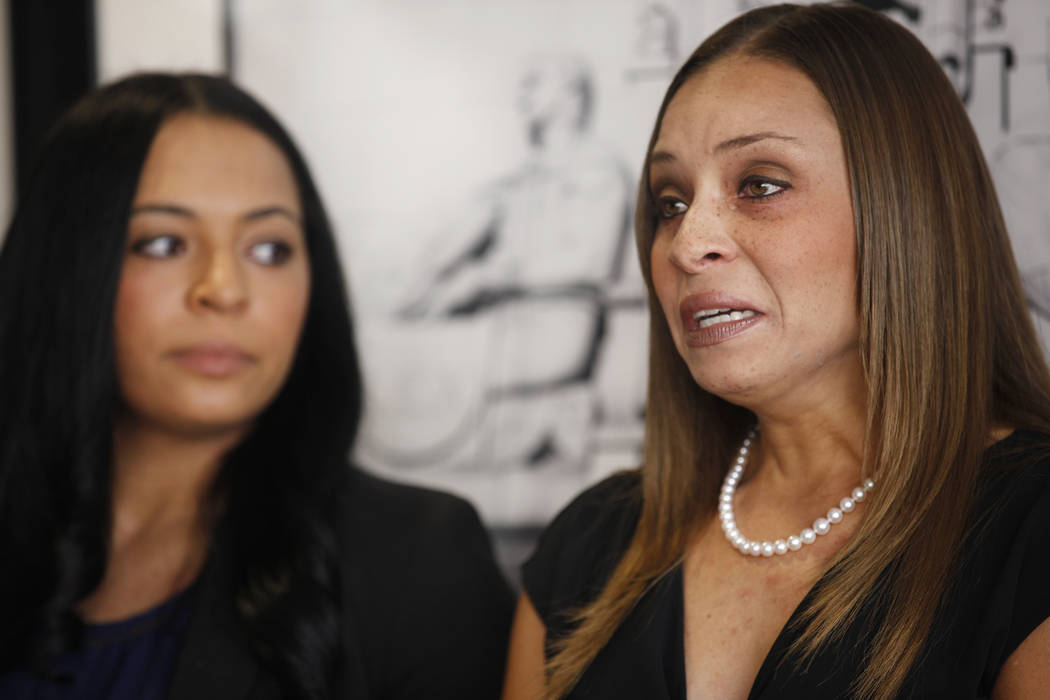
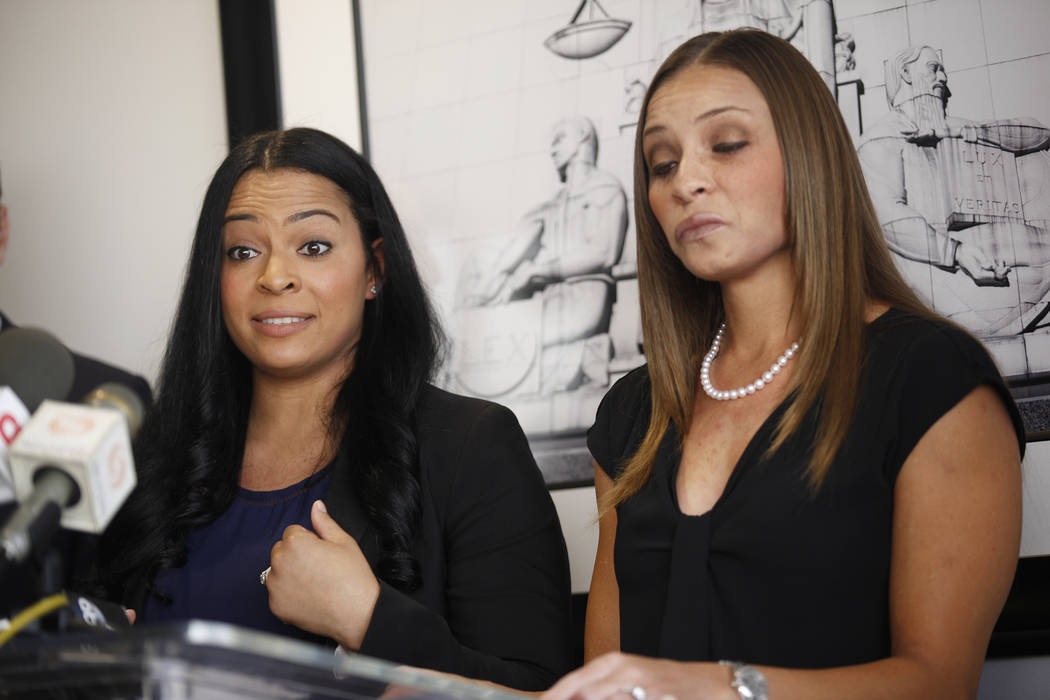

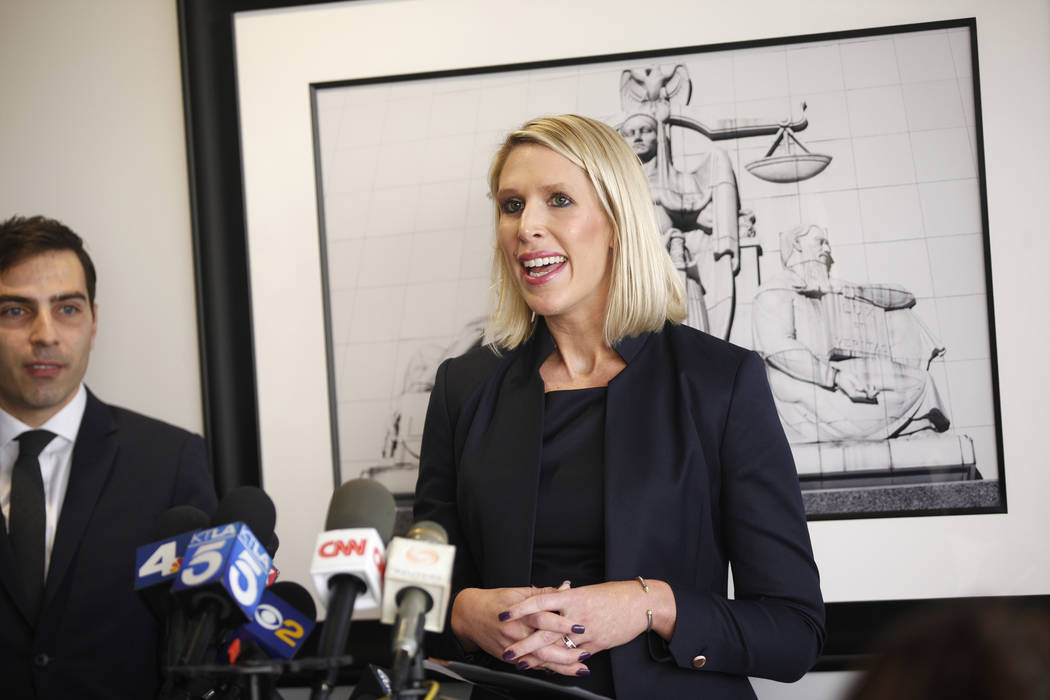
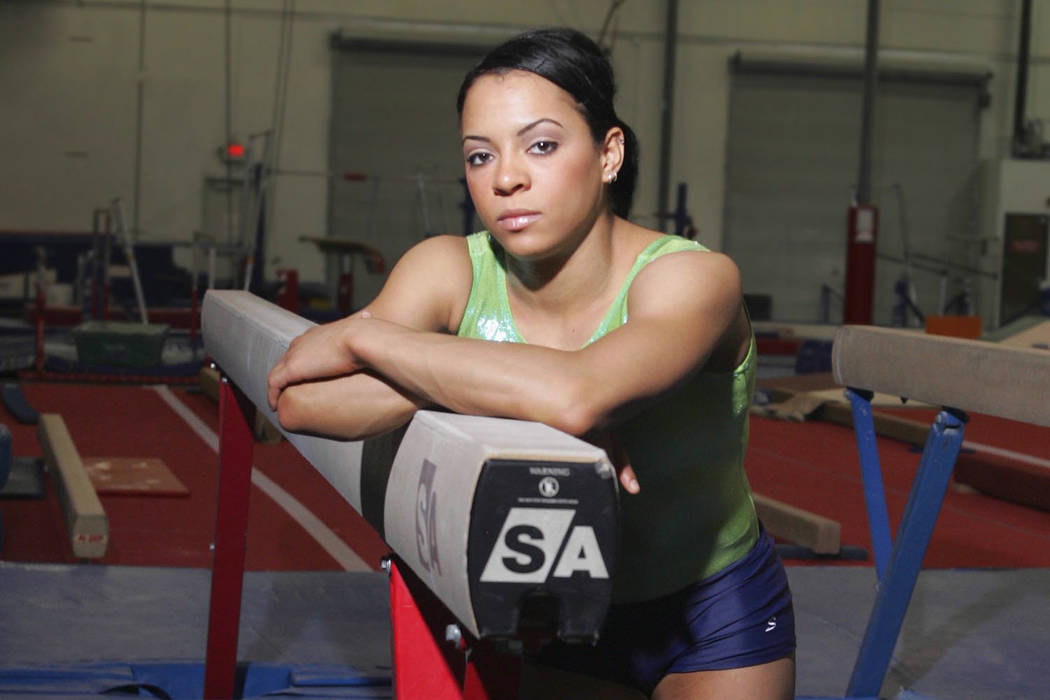
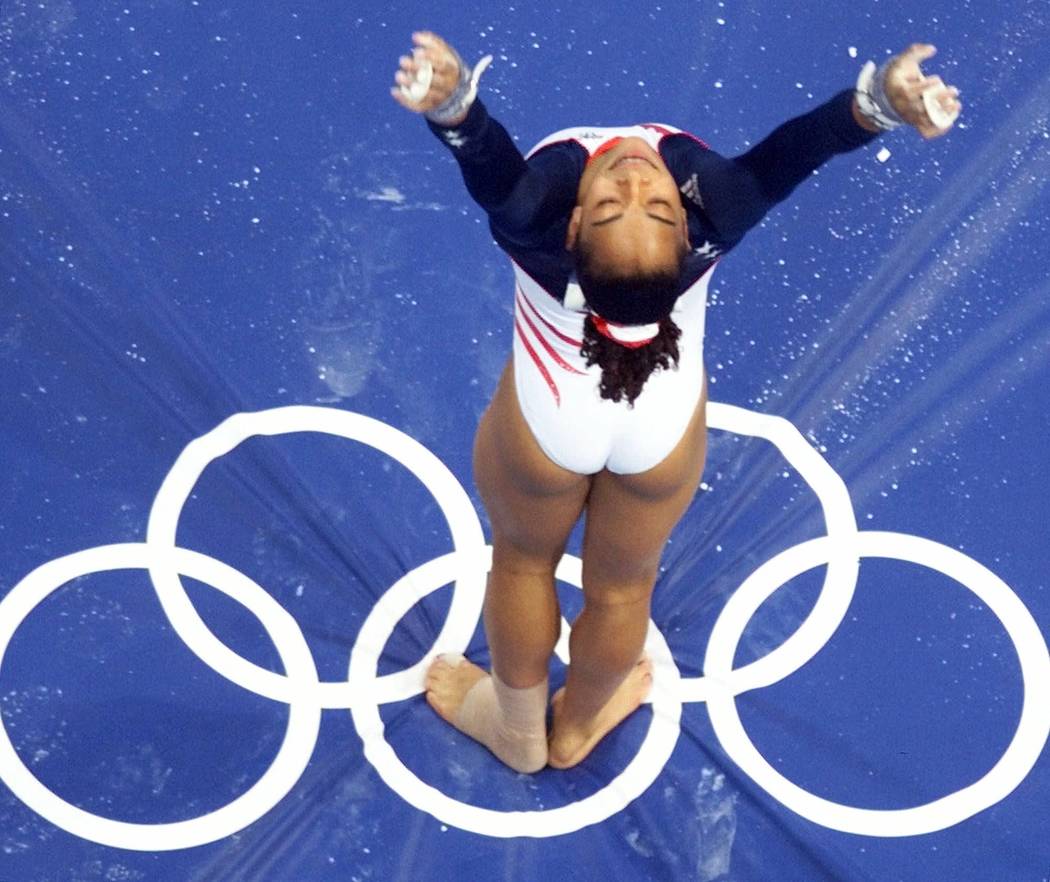
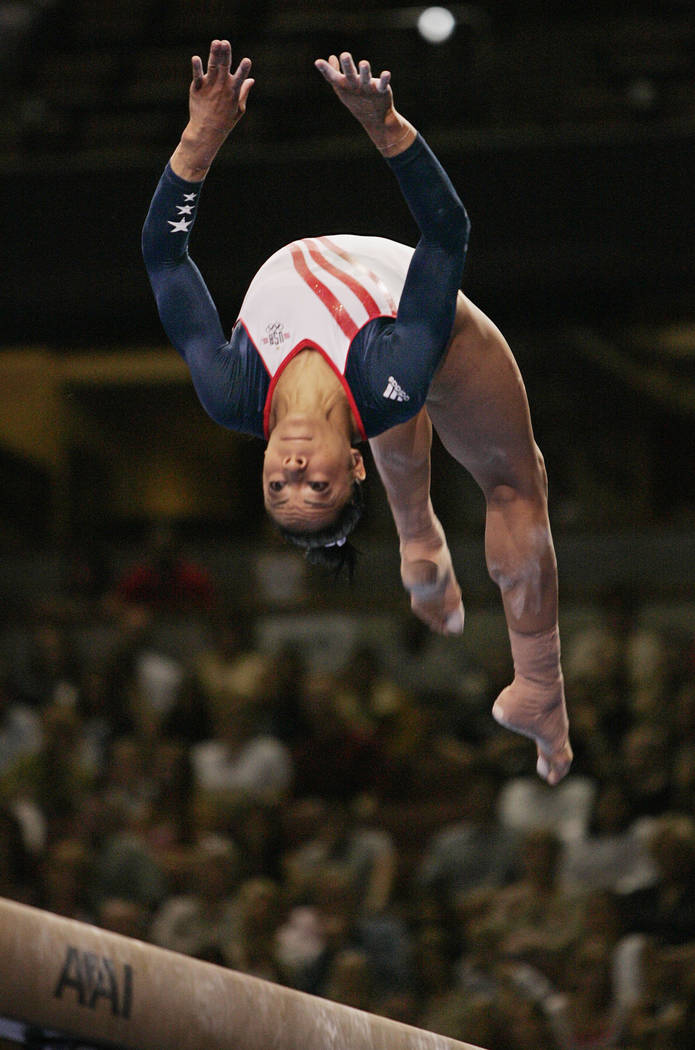
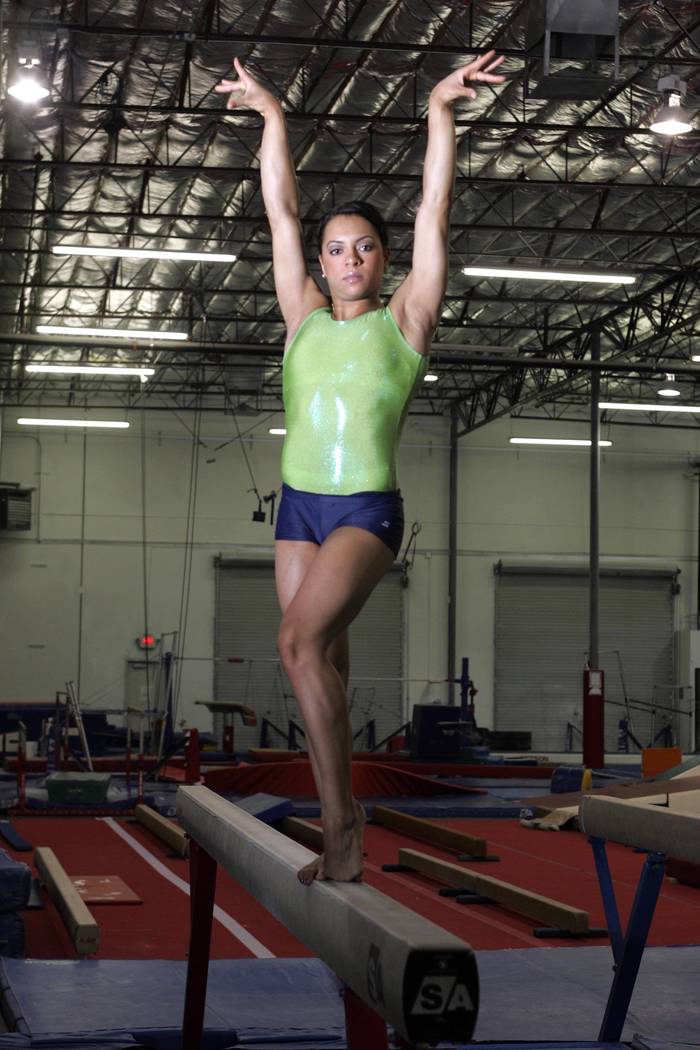
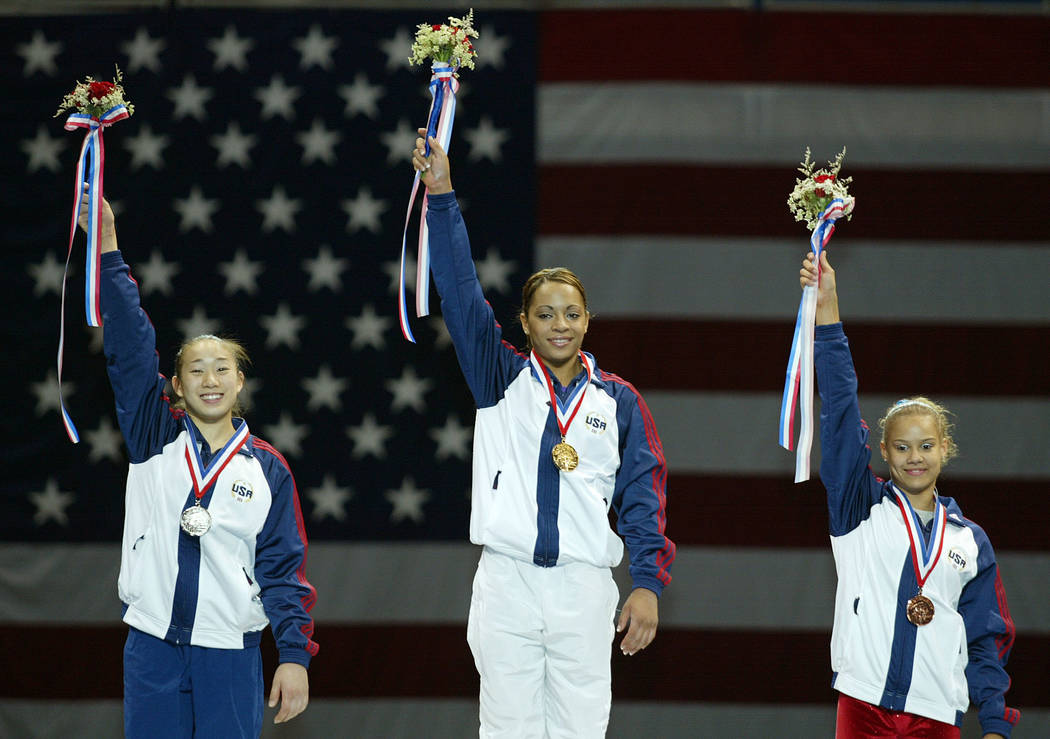

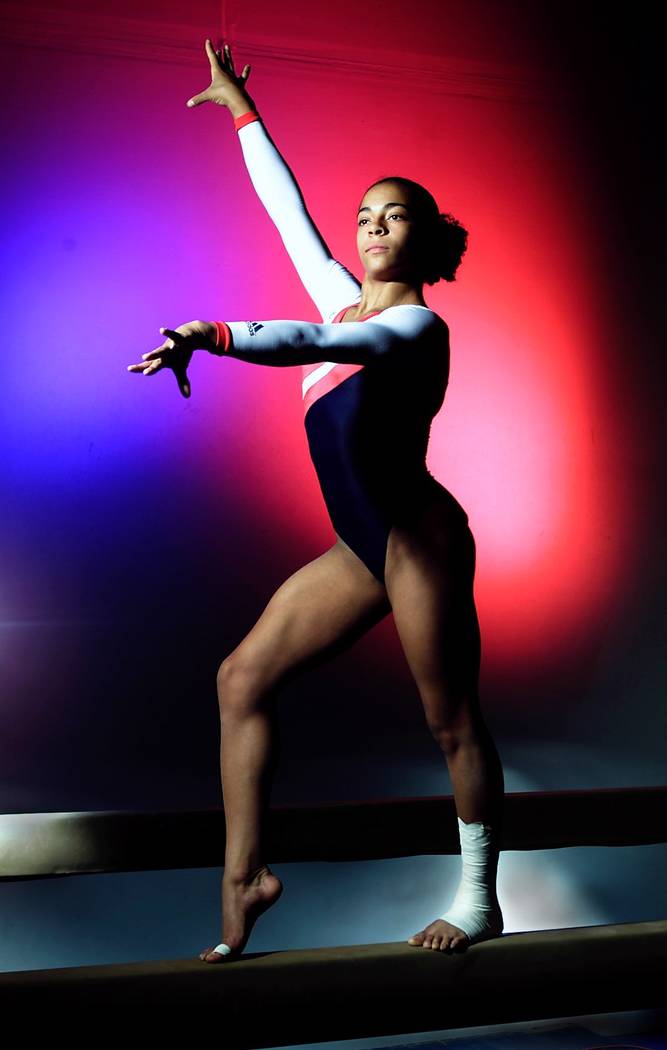
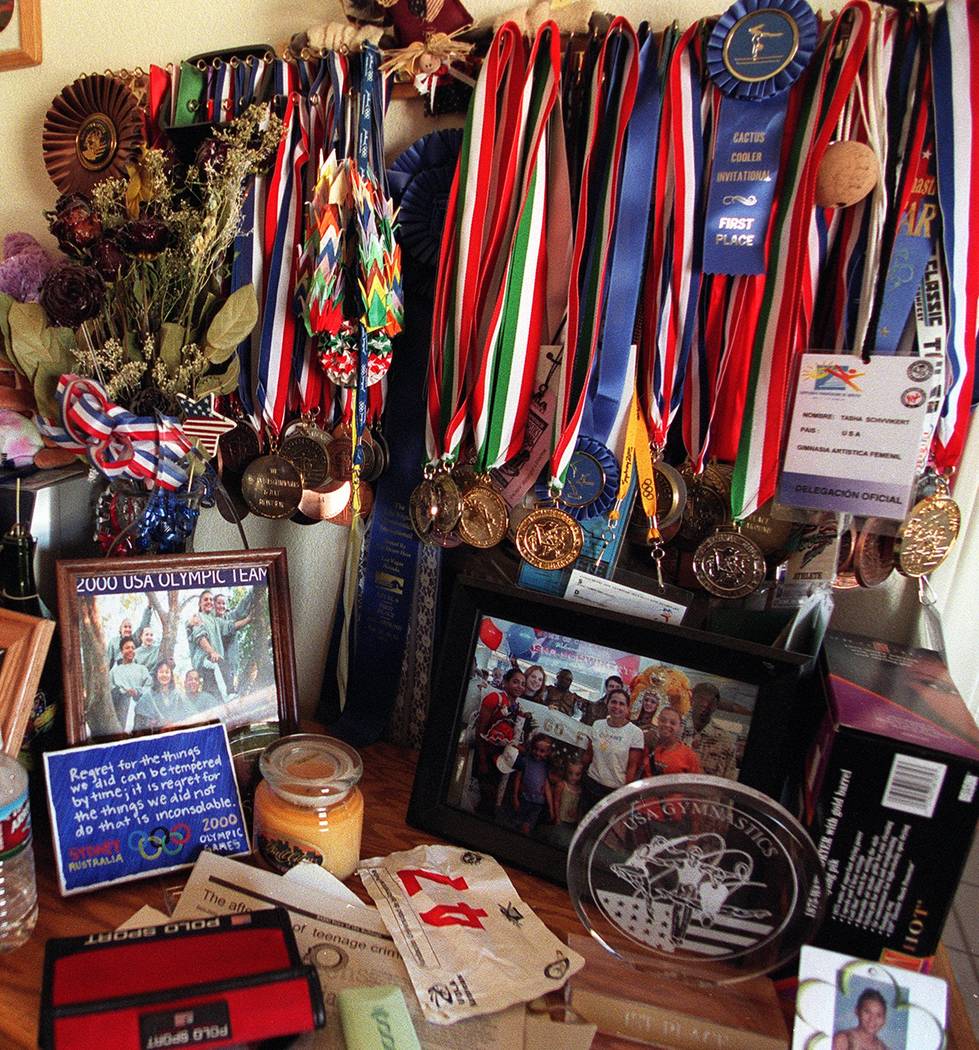
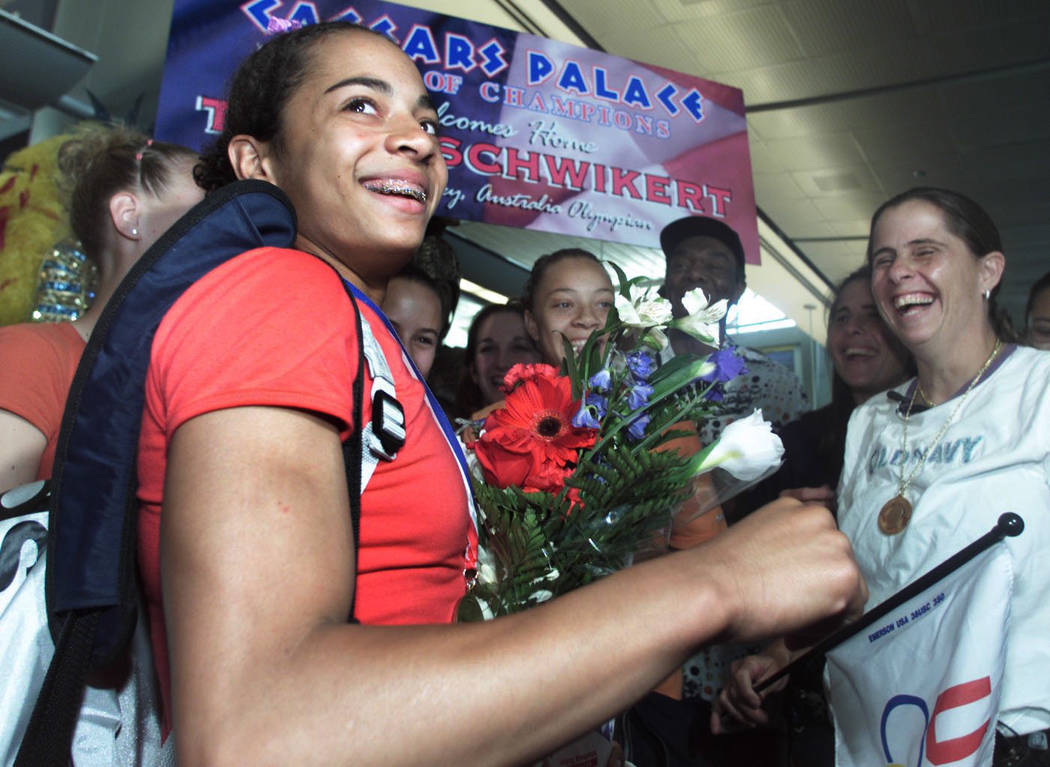
LOS ANGELES — Two Las Vegas sisters who are former members of the USA Gymnastics national team filed racketeering lawsuits Monday against the organization and the team’s former doctor, Larry Nassar, who went to prison for sexually assaulting young athletes.
Olympic bronze medalist Tasha Schwikert-Warren and her sister, Jordan Cobbs, who grew up in Las Vegas and trained at Gymcats in Henderson, announced their lawsuits alongside their attorneys in Los Angeles.
Both women said they were abused by Nassar.
“The bravery of fellow gymnasts, including my sister, who have come forward to share their stories has encouraged me to speak up and share my truth,” said Schwikert-Warren, 33.
The woman stood next to her younger sister as she described a “manipulative” and “abusive” culture at USA Gymnastics.
“I am outraged that USA Gymnastics has yet to take responsibility for creating this toxic culture, which allowed this child molester to get away with abusing children for decades,” Schwikert-Warren said during the news conference, which was held at the offices of the Panish Shea & Boyle law firm.
The sisters said they were motivated to go public after the recent arrest of former USA Gymnastics President Steve Penny in connection with allegations that he tampered with evidence in Nassar’s case. Their lawsuits were filed in Los Angeles County Superior Court, in the state where the sisters allege they were sexually assaulted numerous times.
They seek to hold the defendants, including the U.S. Olympic Committee, accountable for referring them to Nassar for medical treatment, even though they knew “or should have known of Nassar’s sexual abuse and could have prevented it by taking sexual abuse allegations seriously and maintaining a culture of accountability and transparency.”
Efforts to reach the defendants Monday were unsuccessful. But in July, USA Gymnastics and the U.S. Olympic Committee filed separate court papers seeking to absolve themselves of legal responsibility for Nassar’s crimes.
‘Moral and social responsibility’
In one document, the U.S. Olympic Committee acknowledged it is “appropriately” part of “discussions concerning moral and social responsibility for sexual abuse, including legitimate questions about what could have been done to recognize and stop Nassar’s abuse.”
But the motions say there are no legal grounds to sue the committee, because Nassar never worked for it, nor were his crimes foreseeable by the committee.
According to a statement released Monday on behalf of the sisters, the lawsuits are the first related to the scandal to seek damages under the Racketeer Influenced and Corrupt Organizations Act, “as each of these defendants engaged in a pattern of racketeering activity including sexual exploitation, abuse, and trafficking of minors and conspiracy to commit such acts.”
Excerpt from the press release and lawsuits filed in California state court for Olympian Tasha Schwikert-Warren and her sister, Jordan, who was also on the national team. They are suing for damages. pic.twitter.com/dh70cciSqQ
— Bri-AH!-na Erickson ? (@brianarerick) October 29, 2018
Attorney Muhammad Aziz said the sisters’ legal team chose to seek damages under the RICO Act because the U.S. Olympic Committee “was influencing the USAG not to discipline and punish some of these coaches.”
He said that in 1999, the committee threatened to decertify USA Gymnastics as the sport’s governing body for failing to give due process to coaches accused of misconduct.
“What about the due process to the girls?” the attorney said. “Any time organizations act in the manner where they cover up evidence of crimes, they can be liable under RICO.”
Relationship built on trust
Schwikert-Warren said she has bottled up memories and emotions from sexual abuse at the hands of Nassar and an eating disorder that took two years of therapy to overcome.
“You just kind of stuff them down, and you don’t talk about them,” she said. “It was one of the hardest things to do in my life, to look in the mirror and say, ‘No, no, bad things happened to you. You know they did. Let’s talk about them.’”
Nassar, 55, was renowned for treating some of the nation’s top athletes in the sport, including gymnasts at Michigan State University and Olympians at USA Gymnastics.
After a seven-day hearing in January in which more than 150 women and girls gave statements about suffering sexual abuse by Nassar under the guise of medical treatment, the doctor was sentenced to 40 to 175 years in prison by a judge who told him, “I just signed your death warrant.”
According to the sisters’ lawsuits, Nassar first sexually assaulted Schwikert-Warren when she was 15, after a two-year “grooming period” in which he developed “a personal relationship with her built on trust and confidence,” and then continued to abuse her more than 100 times over the next five years.
Schwikert-Warren said the culture at USA Gymnastics was based on “fear, silence and intimidation” and prohibited athletes from communicating their feelings or speaking up about their bodies.
At the 2000 Summer Olympics in Sydney, she said, she cried herself to sleep because she was starving.
Henderson coach reacts
Cassie Rice, the sisters’ longtime personal coach and mentor from their time at Gymcats, said in a telephone interview Monday that she learned of the abuse in September.
She coached Schwikert-Warren and her sister since they were 7 and 5, respectively.
Rice said she asked Schwikert-Warren when the allegations arose if the sisters had been abused by Nassar, and she responded, “No, I would have told you.”
The coach said Nassar’s case is “exposing a lot of other things about the sport that are more prevalent and more damaging lifelong,” such as the pressure to be thin and “push no matter what.”
“I still at times pushed her past where I would today,” Rice said. “We thought the good coaches were ones that sticked to the assignment no matter what. The mentality was be tough, be tough, be tough.”
She said she hopes her former athletes can help change the scope of gymnastics for future gymnasts.
“I’ve been kind of on a mission to educate coaches on a bunch of different principles that inadvertently harm the athlete. There’s still a culture at the top level,” Rice said. “We as coaches all need to change that mentality all over the country and make sure we’re listening to our athletes and taking on a partnership role with them instead of the authoritarian role we’ve taken on in the past.”
Medals ‘not worth it’
Schwikert-Warren, now a mother and lawyer in Las Vegas, received an Olympic bronze medal in 2000. In 2012, she was inducted into the Gymnastics Hall of Fame for her accomplishments, which include a World Gymnastics Championship gold medal, a 2003 world team gold medal, and 2005 and 2008 NCAA national all-around titles while at UCLA.
“At the end of the day you look at your medals, and a medal is great. It’s a material object, but the memories behind that, it’s not worth it,” she said. “The gymnasts need to do gymnastics on their own terms. I don’t believe it needs to be abusive and a nightmare of a gymnastics career to succeed. It can be happy, it can be healthy, and we can succeed.”
Her 32-year-old sister also attended UCLA and competed on the USA Gymnastics national team. She placed third in the 2002 American Classic all-around and second in the floor and beam. She won all-around and uneven bars titles at the 2002 Gymnix International in Montreal and UCLA’s gymnast of the year award in 2008.
According to court records, Nassar first abused Cobbs when she was 14 and assaulted her more than 15 times. She now works as a personal coach for young gymnasts at Desert Gymcats, which is run by Rice’s mother.
Cobbs said she recently realized she was a victim, but she was hurting inside and wanted to return to coaching because she never felt she finished her gymnastics career on a good note.
“That’s why I coach. I want them to leave gymnastics loving what they did, loving what they put their heart and soul into,” she said. “That is our identity, being a gymnast.”
Contact Briana Erickson at berickson@reviewjournal.com or 702-387-5244. Follow @brianarerick on Twitter. The Associated Press contributed to this report.













